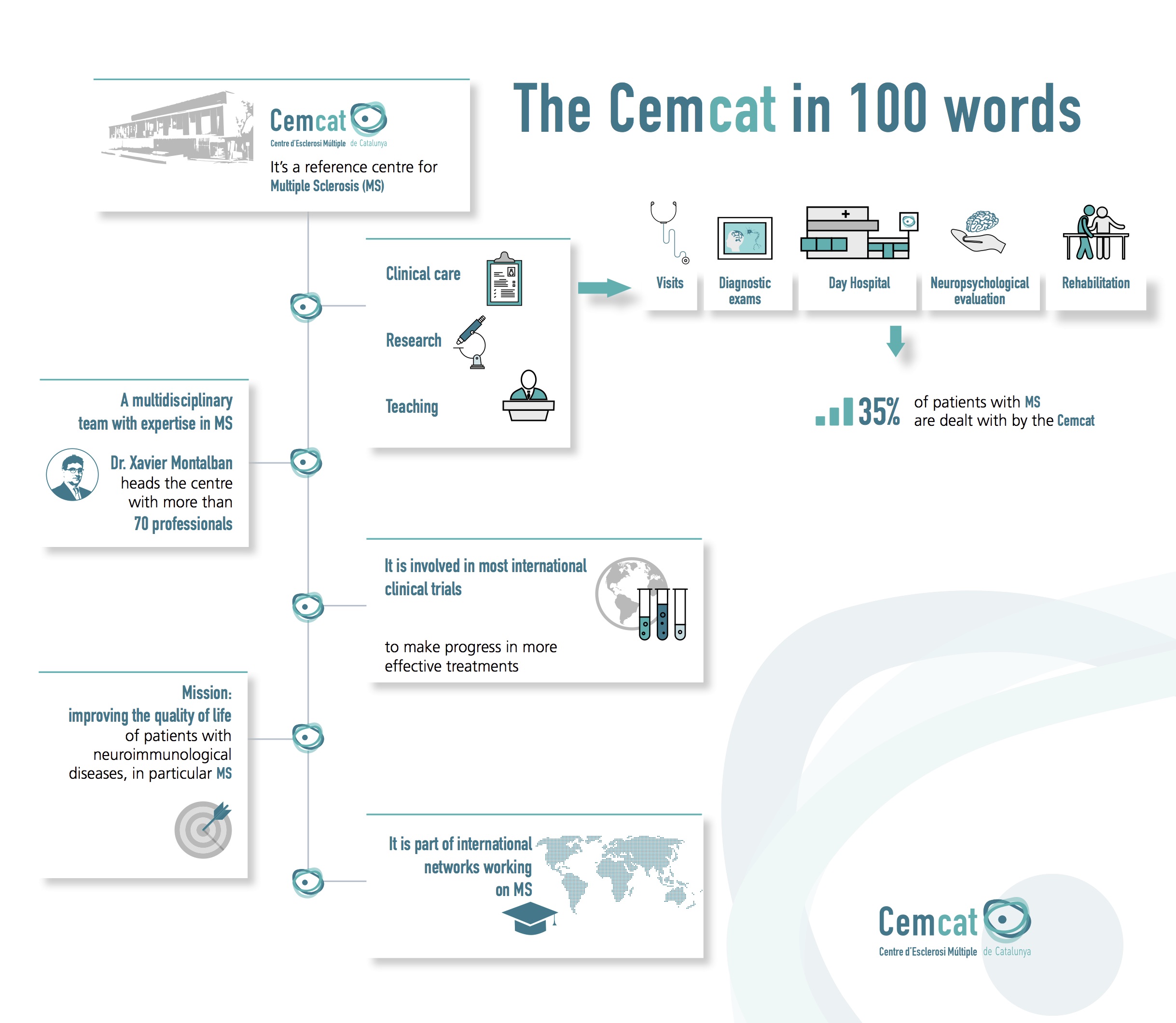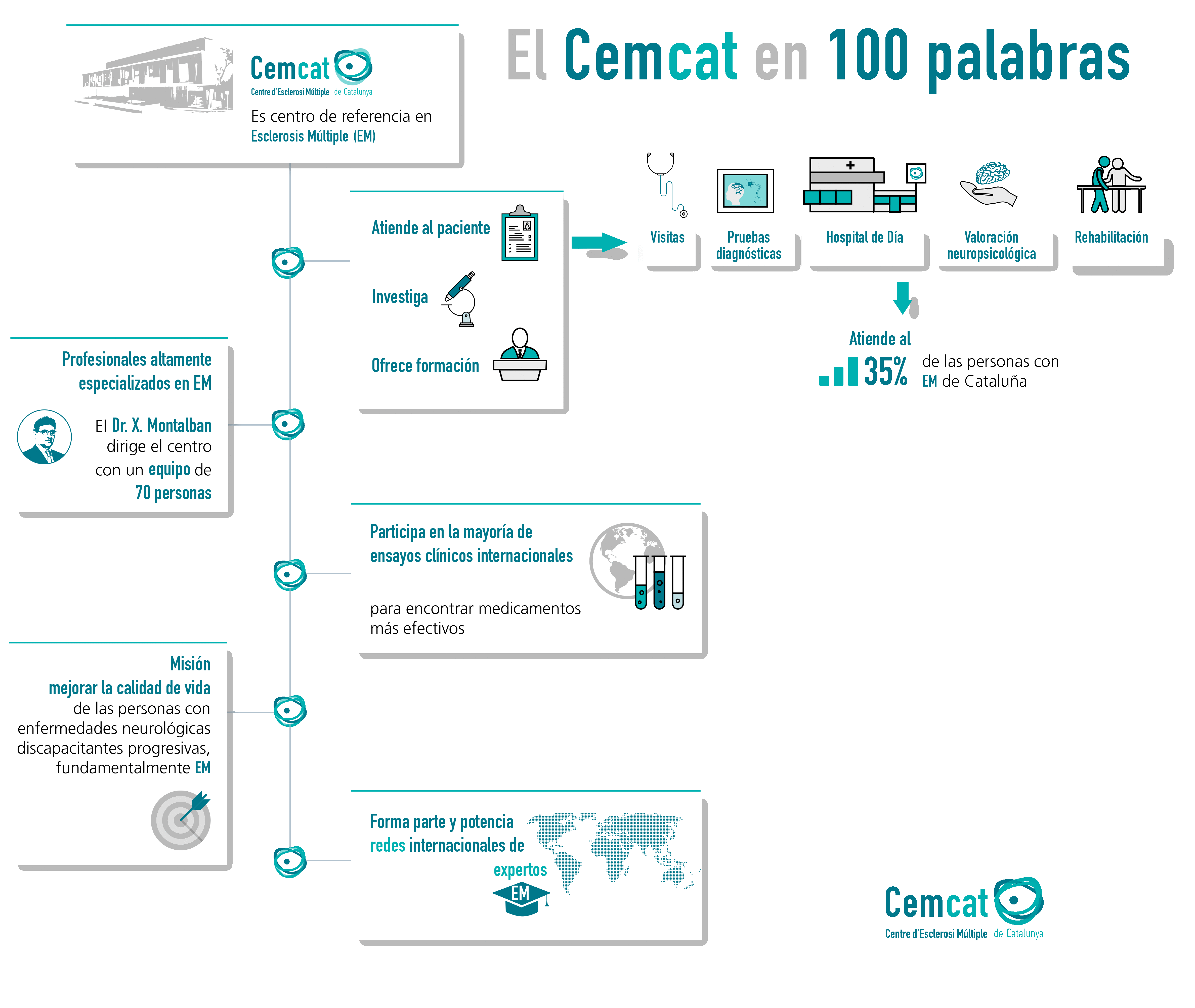You are here
Julia Vilella
"No dramatics, no self-pity". According to Julia, that is vital when you have to live with MS. She was diagnosed with the disease when she was aged 17, and just beginning her Industrial Engineering studies. She says that she has learned "to dance with the whirlwinds".
The first few days when she came for treatment at the Cemcat Walk-in Clinic, she says she didn't want to look at or hear anyone. "I put my music on full blast and didn't want to hear any conversation, as if it was nothing to do with me. It was all very hard at the start. Aside from having five or six outbreaks in a year and a half, with a real physical impact, it very much affected me psychologically. They told me I needed psychological support, but I refused," she recalls.
"Sometimes I couldn't hold my pen in exams, couldn't cut my meat… But luckily I have a really positive and stimulating environment: my parents, my brother and my friends didn't let me spend the whole day in bed. I think you really have to look after yourself, prioritise what's important and whatever suits you best at each moment, psychologically".
"Multiple sclerosis doesn't define me, and never will," she asserts. Julia finished her Industrial Engineering degree and went to France on the Erasmus scheme, where she continued with her treatment. On returning to Barcelona she began work in the e-commerce department of a multinational. On the days she has treatment at Cemcat, she works from home afterwards. "I have never faced any problems in that regard".
"Young people are most worried about their partner and children. You don't know how your partner will take it, have all these doubts about mentioning it… First you need to digest it properly yourself, and then decide who you tell, and how. If someone runs out screaming, then maybe you don't need that person around you".
"I've never searched for "multiple sclerosis" on Google. If anyone mentions a new development to me, I look for scientific articles. I think there is a lot of misunderstanding about the disease. I worry that people treat me differently, because there is nothing more disabling than being treated like you're disabled. The disease has made me less critical, and made me value things more. Overcoming difficult situations gives you real strength!".



